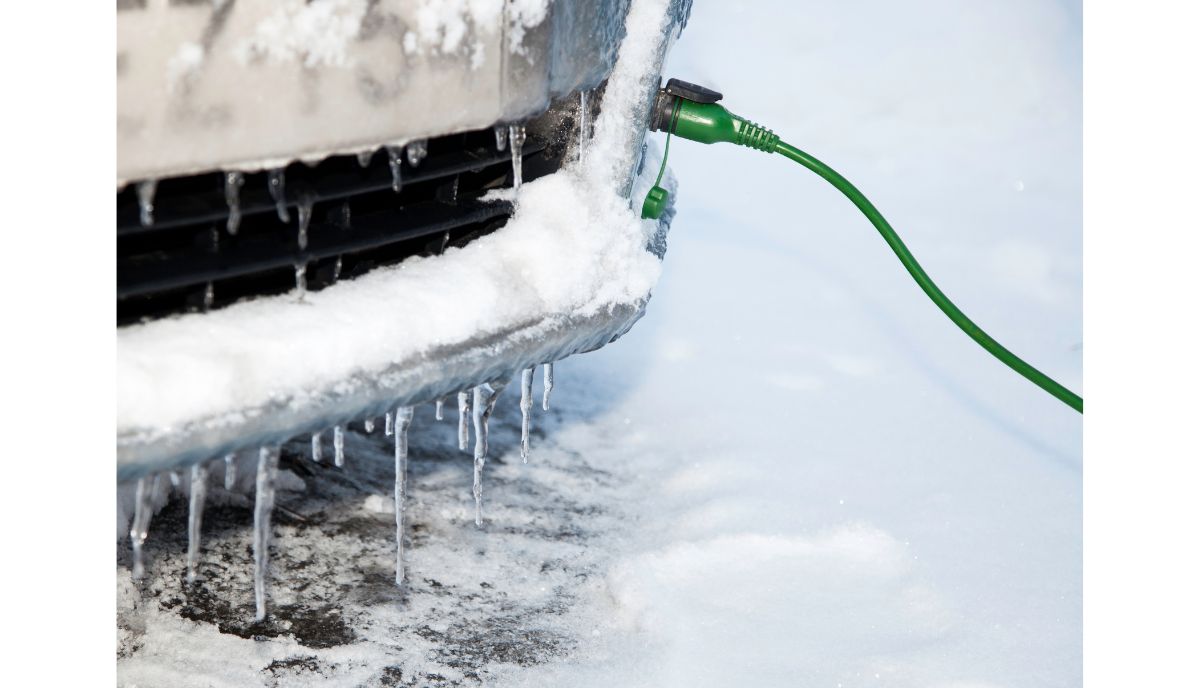Yes, it is safe to plug in a block heater overnight because block heaters are not dangerous. They warm the oil, which allows the substance to maintain its viscosity. This is good because the oil can flow efficiently, lubricating the engine’s moving parts.
Usually, when temperatures drop in the winter months, the oil becomes too thick to flow. This exposes the engine’s moving parts to friction. Friction elevates the engine’s rate of wear and tear. It takes mere hours for the block heater to warm the engine to a point where you can start the car immediately without idling it for several minutes.
But some people cannot afford to wait for hours. They must keep the engine warm at all times in case they need to use the car at a moment’s notice. Varty Yo, on this Duramax Forum, has given the example of his truck.
He leaves it parked at the airport before flying out. When he flies back at midnight, he can start the car and drive away immediately because the truck’s block heater remains plugged in for up to two weeks.
You also have SD350 on the Power Stroke Forum, who keeps his tractors plugged in at all times. Why? Because he doesn’t know when he may need the machines. The block heater ensures the tractors are ready to go whenever needed.
Block heater manufacturers are well aware of these instances, which is why they make robust tools capable of withstanding the strain of continuous use, not just overnight but over a period of several days. They wouldn’t sell block heaters that malfunction because of prolonged use. Does that make block heaters safe? Not completely. You have three significant concerns:
- If the block heater remains plugged in all night, you may forget to unplug it before driving away the next day.
- The block heater is safe. But if you use an extension cord, the wrong gauge or frayed wiring can cause arcing, overheating, fires, and electrocution. I warn you against leaving extensions unattended overnight. Anything can happen.
- Extension cords and power cords are tripping hazards.
But even with these risks, people keep their block heaters plugged in for multiple days and weeks. Therefore, plugging this device in overnight shouldn’t worry you, especially if you take the relevant precautions.
How Long Does A Block Heater Need To Be Plugged In?
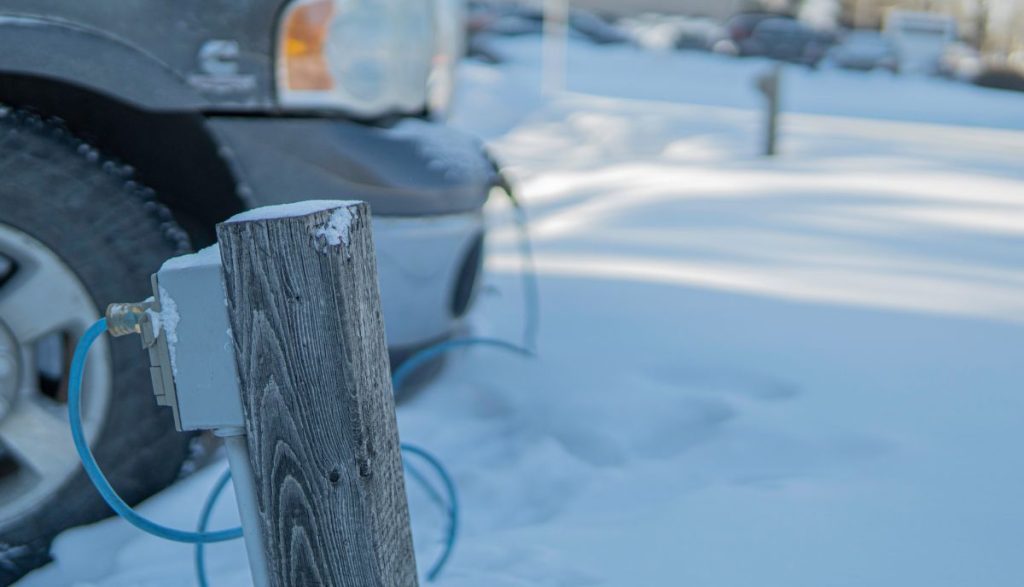
An hour is enough. Aim for two hours to be on the safe side. Fours should be the maximum. You won’t harm the block heater or the engine by leaving the heater in overnight. But you don’t gain anything by extending the heater’s operations beyond the first four hours.
If you struggle to start the car even after using the block heater, consult a mechanic. Don’t be so quick to blame the heater. You may have a defective battery.
Things To Consider Before Plug In A Block Heater Overnight
Plugging a block heater in overnight is not dangerous. But many laypeople have concerns, which is why they usually account for the following variables before proceeding:
Block Heater Safety Guidelines

Block heaters are safe. Nonetheless, you should take the following precautions to prevent unaccepted accidents:
- Check the block heater before winter comes. According to paNOW, these devices can corrode because of the salt they pick from the road. This can create electrical arcing. Ask a mechanic to inspect and service the component ahead of time. This allows you to fix defects or replace broken heaters before temperatures plummet.
- Do the same for extension cords. Many people use them because they don’t have wall sockets within the car’s vicinity. While you can repair faulty extension cords, it is safer to replace them.
- Unplug the block heater before driving away.
- Don’t drive over your extension cords and cables.
- Use three-pronged extension cords.
- Ford Service Content recommends a 16-gauge outdoor extension cord. A thin extension cord is more likely to overheat. The ‘Outdoor’ attribute is vital because outdoor extension cords have thick jackets strong enough to tolerate extreme conditions such as freezing temperatures, pests, and moisture. An indoor extension cord will deteriorate outside even if the gauge is correct.
- Use UL-listed extension cords.
- Keep the cabling short. Extension cords with long lines have higher resistance, which increases the risk of overheating and fires.
- Don’t daisy-chain extension cords.
- Keep the cabling away from flammable items in case arcing occurs at night.
- If you’re hesitant to leave the block heater unattended overnight, install a timer that turns the device off after a few hours.
- Make sure all the connections are secure.
Fire Safety Considerations
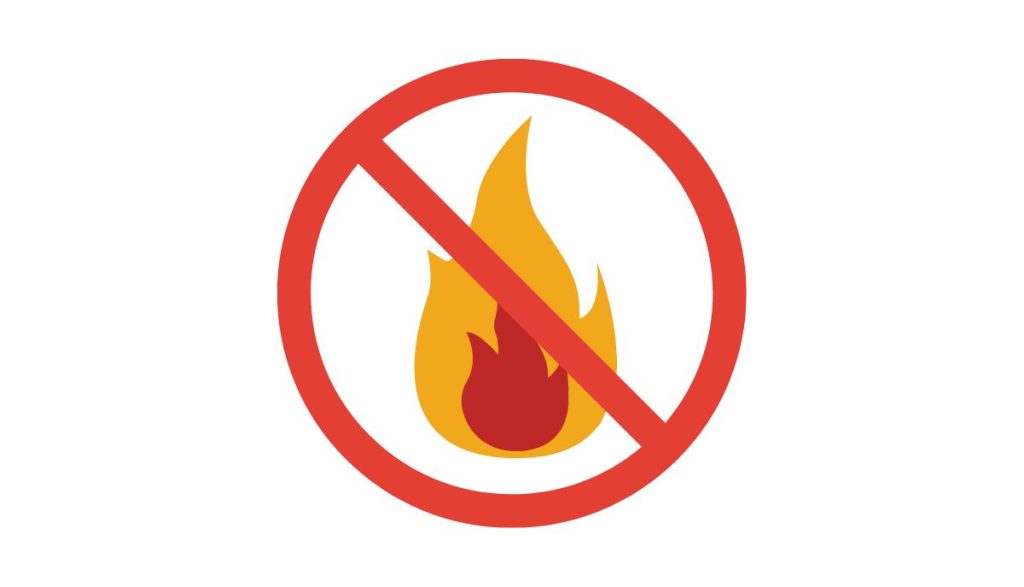
While a fire is unlikely, you can’t rule it out. Block heaters are too reliable to overheat because you plugged them in overnight. However, some block heaters are old and worn out. Others have faults. This increases the possibility of a fire.
You also have the power cord and extension cords to consider. They can start a fire if they fail. The safer option is to use the heater early in the morning while you’re awake because you can take action if things go wrong. But if you’re determined to run the heater overnight, this is the least you can do:
- Inspect the heater for faults regularly.
- Don’t use extension cords if you have a choice. Plug the block heater directly into a wall socket.
- Unplug the heater when it isn’t in use.
- Give the heater a dedicated extension cord.
- Manitoba Public Insurance recommends a protective cover for the heater’s plug.
- Disconnect the heater by handling the plug. Don’t pull the electrical cord. It will break, causing arcing.
Monitoring And Maintenance
You can’t monitor the block heater at night, which is why this practice is dangerous. However, you can inspect and maintain the device before winter comes to identify and eliminate defects. You should do the same for the engine and its components:
- Perform a load test and replace a weak battery.
- Use a battery tender for vehicles that go unused for extended periods. Keeping the battery warm with a block heater isn’t enough to prevent it from degrading. Keep jumper cables on hand in case the car refuses to start.
- Find a block heater that fits your situation. Some people use dipstick heaters because of their simplicity and affordability. Others prefer coolant heaters because they heat the coolant directly.
- Don’t forget to replace old and worn-out wiring. Otherwise, they will arc and start a fire.
Timer And Thermostat Usage
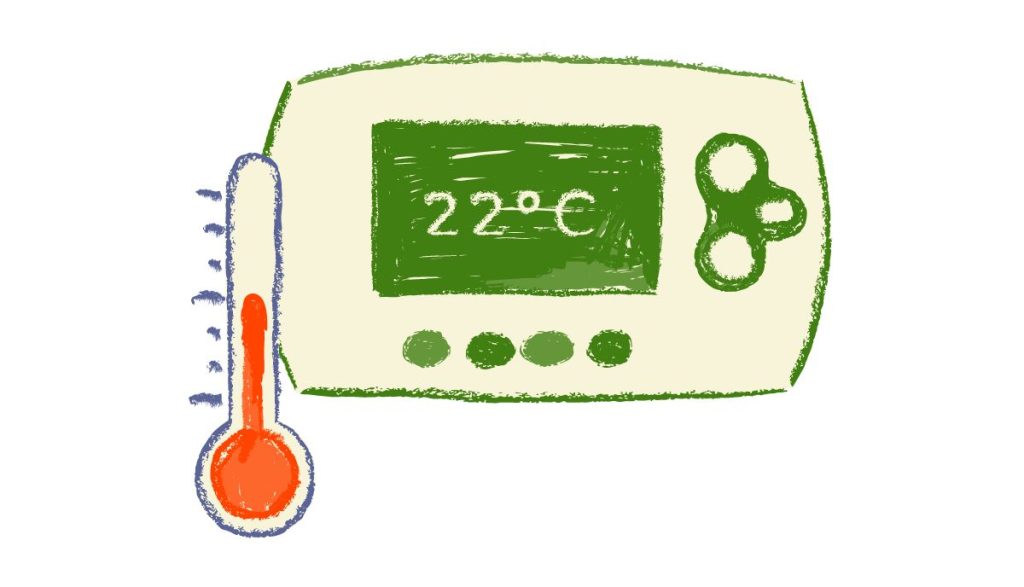
Timers and thermostats matter for two reasons. First, some people think leaving the block heater on all night is wasteful. And yet, they want to use their cars the moment they wake up without idling the engine or waiting two to four hours for the heater to warm the engine.
Others don’t know when to use the heater. According to Northwest Territories Power Corporation, heaters are only necessary when the temperature falls below -15 C. But modern vehicles will start and run even at -25 C.
Does this mean you should uninstall the heater? Not necessary. You can accelerate an engine’s wear and tear by repeatedly starting a vehicle in cold weather. Many laypeople would like to prevent that sort of damage, but they don’t know the right time to use the heater. Timers and thermostats solve these issues:
- A thermostat will only turn the heater on when temperatures fall below the relevant threshold (-15 C). In other words, leaving the heater plugged in overnight doesn’t mean it’s working. The heater will stay off until your engine actually needs the heat. This puts laypeople at ease because they don’t have to worry about waiting too long to plug the heater in.
- You can program the heater to turn on and off at specific times. Again, the device is plugged in all night but only running for a few minutes or hours at a time.
Heaters and thermostats make the practice of leaving the heater plugged in overnight less dangerous. Many laypeople remove these mechanisms because they want the block heater to run nonstop for several hours.
Energy Consumption And Cost
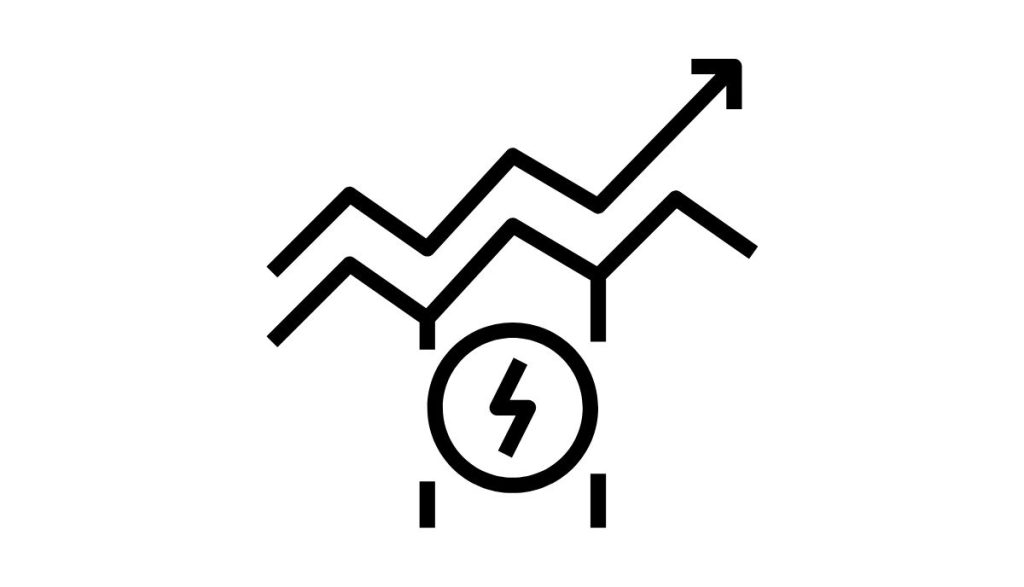
This is the one factor that gives most people pause. They don’t expect the block heater to overheat. Instead, they think the device will increase their utility bill. Sherwood Ford mentions a similar concern. They think using the heater for more than four hours wastes electricity.
This assumption is not wrong. However, these devices don’t use enough power to impact your electricity bill significantly. You’re looking at a few additional dollars every month. Naturally, that money will add up over time.
Climate-Specific Consideration
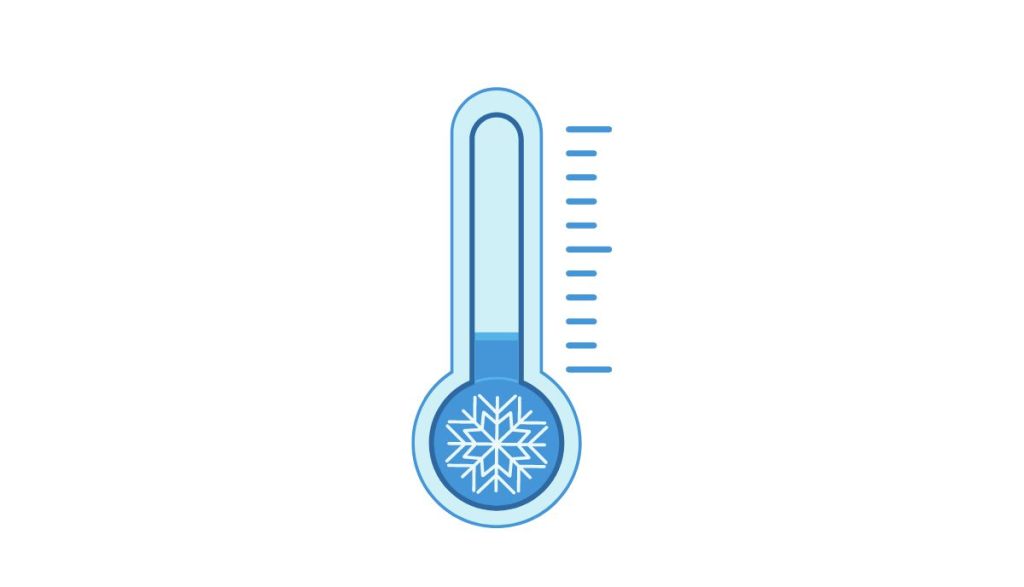
Sometimes, plugging the heater in overnight is necessary. Lifewire expects drivers to use block heaters throughout the night if temperatures are lower than the antifreeze can tolerate. Bemac Collision Center has quoted the CAA in Manitoba, which believes that two hours of warming are insufficient for temperatures as low as -30 C. Although, they also agree that using the heater overnight doesn’t provide any additional benefits.
Personal Safety
Personal safety rarely enters the picture when one considers using their heater overnight. The most hazardous component is the extension cord, and only because it can trip you. You can’t rule out electrocution because of a bad socket, frayed wiring, or defective extension cords.
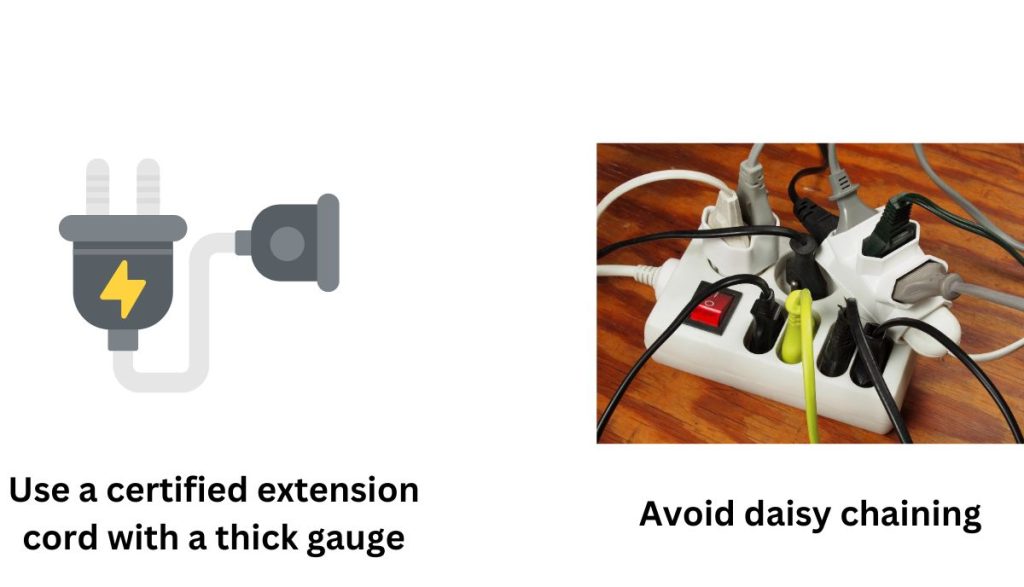
But stories of extension cords and block heaters harming vehicle owners are the exception, not the rule. While you can’t rule out overheating and shocks, you can take relatively simple steps to prevent them, such as using a certified extension cord with a thick gauge and avoiding daisy chaining.

